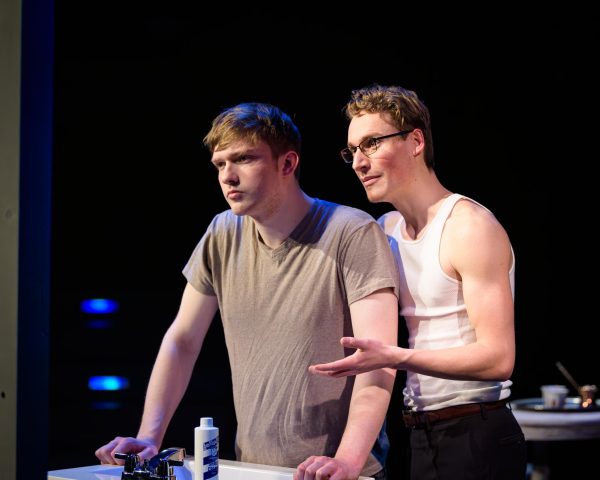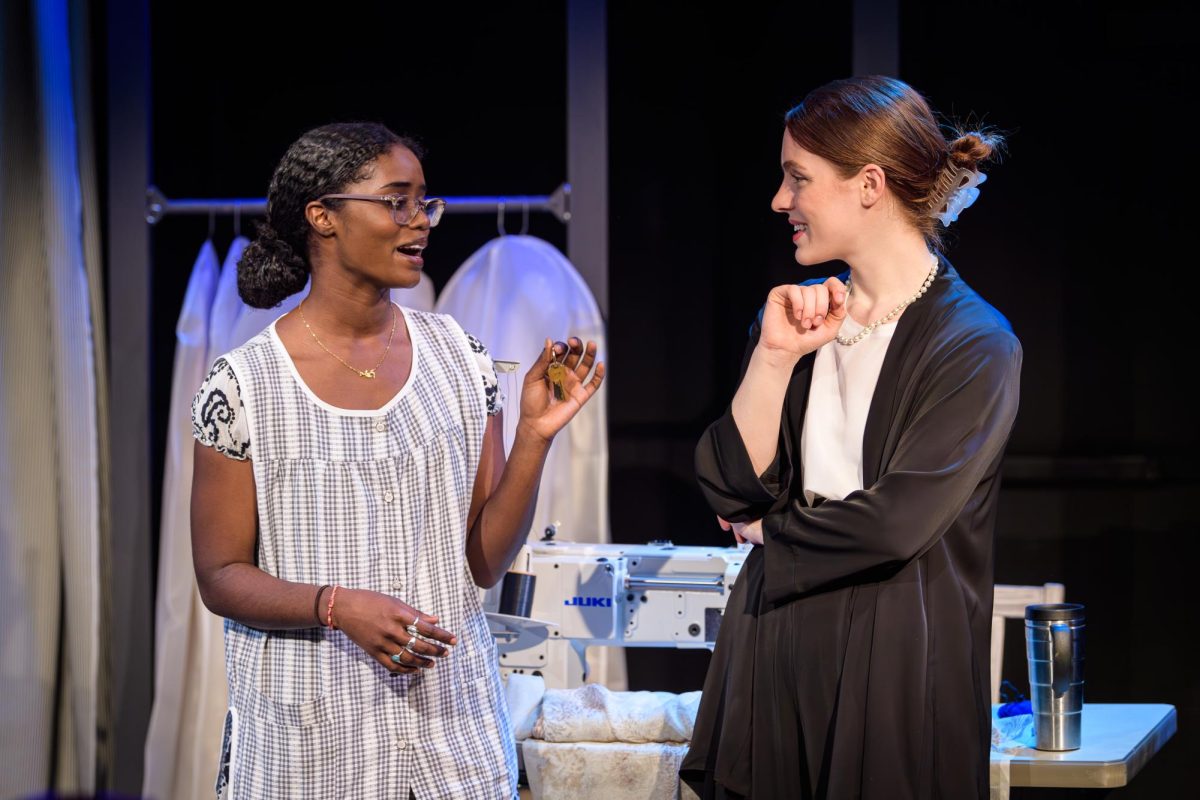Amid political turmoil, economic crisis and social unrest, an explosion erupted in Lebanon’s capital, Beirut, causing over 200 deaths and injuring thousands more on Aug. 4, 2020.
This event serves as the basis for the play “Cheating Fate,” which made its debut with Pitt Stages on Feb. 23 at the Henry Heymann Theatre. The show, co-written by Sara Abdo and Pitt MFA student Karim Chebli, will run Tuesday through Thursday at 8 p.m. and Sunday at 2 p.m. until March 3.
Chebli, the co-writer and director of “Cheating Fate,” said writing this play was a way to highlight the explosion in Beirut and the human condition in Lebanon. He said this translates to the real life experiences of those in Lebanon and people here in the United States.
“It sheds light on the explosion that happened in Beirut in 2020, and it is our way as artists to talk about this truth that has been absent since the explosion,” Chebli said. “Four years later, we still do not have an answer with regards to what had happened.”
The play focuses on four separate scenes occurring simultaneously on stage, portraying experiences related to abortion, racism, divorce, drag, PTSD and more. Chebli said these experiences, although rooted in Lebanon, translate to human experience globally.
“I like to write stories that allow us to empathize with other human beings elsewhere in the world,” Chebli said. “Hopefully when you watch ‘Cheating Fate,’ you’re going to see different causes that we are shedding light on, and how those are mirrored and transformable across time and space.”
Victoria Murphy, a sophomore theater and political science major, plays Layla, a 30-year-old woman who is pregnant out of wedlock. Murphy said working with Chebli involved a lot of hands-on work with the script and staging.
“It’s been really collaborative, the whole process,” Murphy said. “If something didn’t translate super well from Arabic to English, then he [Chebli] will work with us and say, ‘OK, well, what’s a better phrase to use here that maybe the audience would get more?’”
Niko Bertran, a first-year psychology major, plays Amin, a Syrian refugee. Like Murphy, Bertran described working with Chebli as a collaborative, gratifying process.
“Karim really just wants us to feel comfortable, and wants to give these characters life,” Bertran said. “Even the script has been super flexible due to the fact that he wrote the script.”
Chebli went into more detail on the process of working directly with the student actors on the production.
“We have the flexibility to alter the script or the lines in a way that is easier for the actor,” Chebli said. “In our process, it is more flexible, and it allows actors to give their feedback, and we work around what is written in a way that is easier for them.”

Mariam Ahmed, a senior communications major, plays Zebenay, an African housekeeper who moved to Lebanon for a better life, but faces the challenge of racism as an African woman in an Arab country. For Ahmed, Chebli’s presence in the play’s production allowed her to better understand the character she portrays.
“He is really good at contextualizing the script and the cultural context that comes with it,” Ahmed said. “He also is really open to having us actors insert our own personal things into the characters.”
Chebli spoke highly of the nine actors in the play.
“I’m so happy that we have a cast of nine beautiful actors that are engaged in telling our story, Chebli said. “They’re putting their bodies, their voices, their energy, to serve this storytelling process, and it’s beautiful to see how each one of them is putting a lot of who they are to create these characters.”
The story focuses on the lives of nine individuals within four apartments, sharing their life stories and hardships. The play is only one hour in duration, but it covers a variety of topics and emotions in that time, according to Chebli.
“Although the play has bits and pieces of smiles and laughter, in the end, it’s something rooted in reality,” Chebli said. “It has a lot of pain, and their [the actors] willingness to tell the painful stories of other people in other cultures is something beautiful that our students are not just performing or rehearsing for a performance.”
Murphy explained the significance of acting in a play depicting such reality-driven issues.
“This play is a political drama at its heart, so it’s going to open some peoples’ eyes, to think ‘Oh, this is an actual issue going on in Lebanon,’” Murphy said. “This could happen to anyone, and these are people, they aren’t just numbers that have died in an explosion.”
Ahmed said the play is, at its core, about the harsh reality of being human.
“I think the show is really just about the human experience and just, like, being OK with how realistic it is in the sense that in life, there might be uncertainty or questions that go unanswered, or people without real resolutions,” Ahmed said.
Chebli said the exploration of such heavy yet universally understood topics is the core of the play.
“We discuss xenophobia, homophobia, racism, migration and plenty of other political and economical issues,” Chebli said. “And it’s beautiful to see our young 18, 19, 20, 23-year-old Pitt students developing their characters into 40-year-olds discussing topics such as abortion, divorce and human rights in a beautiful, collaborative process.”



